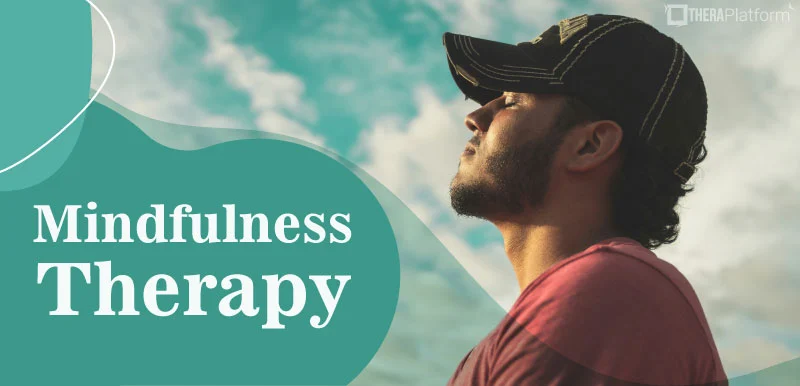Social anxiety disorder ICD 10

Social anxiety disorder ICD 10 is one of the more confusing billing codes used by mental health professionals as coding depends on your billing source and comorbidities. Social anxiety disorder is a serious mental health problem affecting 7.1 percent of adults in the U.S. yearly.
Summary
- Social anxiety disorder is often coded as F40.10 or F40.11 under ICD-10, but coding can vary depending on comorbidities, the source (ICD-10 vs. DSM-V vs. ICD-11), and payer-specific requirements, which can cause confusion for clinicians. Enrolling in an insurance billing course for therapists can help providers enhance their knowledge.
- Accurate diagnosis is essential, as social anxiety can resemble other conditions like agoraphobia, depression, or avoidant personality disorder. A thorough assessment is needed to distinguish between them and ensure correct billing.
- Comorbidity is common, with up to 90% of individuals experiencing co-occurring disorders such as bipolar disorder, OCD, or substance abuse, which complicates both diagnosis and treatment planning.
- Effective treatments include CBT, ACT, social skills training, and SSRIs or SNRIs, though fewer than 5% of people with social anxiety disorder seek treatment within a year of symptom onset—highlighting the importance of clinician outreach and support.
- By leveraging an EHR like TheraPlatform for efficient documentation and claim submission, therapists can tackle billing with ease.
→ Click here to enroll in our free on-demand Insurance Billing for Therapists video course [Enroll Now]
An estimated 12.1 percent of American adults will have social anxiety disorder at some point in their lives, with women being diagnosed slightly more than men. It is the second most common anxiety disorder after specific phobia. What makes social anxiety so problematic is that it impacts individuals in almost any situation where other people are present. Let’s learn more about this troublesome disorder.
What is social anxiety disorder?
Social anxiety disorder is marked by excessive fear and distress in social situations. The most difficult aspect of social anxiety is that a person doesn’t even need to be doing anything special to feel anxious. People with social anxiety disorder are so worried about being judged and embarrassed that they can just be sitting in a room eating and have extreme fear about the situation. The International Classification of Diseases (ICD-10) is used worldwide for the categorization of medical problems and coding for insurance reimbursement. It lists specific criteria for the diagnosis of social anxiety disorder.
Streamline your insurance billing with One EHR
- Claim batching
- Auto claims
- Automated EOB & ERA
- Real-time claim validation
- Real-time claim tracking
- Aging and other reports

Criteria for social anxiety disorder
Criteria for social anxiety disorder found in the ICD-10 include:
- Excessive fear or anxiety that occurs consistently in social situations, including being in an unfamiliar group or performing in front of people.
- The person is concerned that he or she will act in a way that will lead to humiliation, rejection, or embarrassment.
- Due to these concerns, social situations are consistently avoided or endured with intense anxiety.
- The symptoms result in significant distress or significant impairment in important areas of functioning.
- When faced with social situations, individuals with social anxiety disorder may exhibit physical symptoms, such as blushing, sweating, or trembling.
Note: Many people have some social anxiety. They have a fear of performing in public (e.g., public speaking), and/or they are shy around strangers. The difference between everyday anxiety and having a social anxiety disorder is that people will experience a more intense fear that leads to a higher level of impairment.
Watch this video to learn common insurance billing struggles and solutions
→ Start My Free Trial
→ Start My Free Trial
Social anxiety disorder ICD 10 and diagnostic confusion
The proper coding of social anxiety disorder ICD 10 can be somewhat confusing. Depending on where you look, it may have different names and different codes. For example, in the ICD-10, the social anxiety disorder ICD 10 is still termed social phobia with a code of F40.1, unspecified, or F40.11, generalized.
In the ICD-11, which is in use in many other countries, it is coded as 6B0F and called social anxiety disorder. The DSM-V codes social anxiety disorder as F40.10, attempting to match the ICD-10. Eventually, the ICD-11 will be adopted worldwide and the coding for social anxiety disorder will change to reflect that.
Further adding to the social anxiety disorder ICD 10 confusion is that certain disorders can present with similar symptoms to social anxiety.
Other disorders that can look similar to social anxiety include:
- Agoraphobia
- Depression
- Schizophrenia
- Avoidant personality disorder
These disorders have overlapping symptoms (e.g., avoidant behavior, anxiety/agitation) but have different reasons fueling their behavior and distinct overall diagnostic pictures. For that reason, clinicians must get a complete history and assessment of current behavior before diagnosing social anxiety disorder and using the social anxiety disorder ICD 10 code.
Practice Management + EHR + Telehealth
Mange more in less time in your practice with TheraPlatform

Comorbidity of social anxiety disorder
Social anxiety disorder has one of the highest rates of comorbidity of any mental health problem. It is estimated that up to 90 percent of people with the disorder have a co-occurring diagnosis.
Frequent comorbid disorders include:
- Bipolar disorder
- Obsessive-compulsive disorder
- Substance abuse
Comorbidity presents a particular problem for accurate diagnosis and treatment and proper use of social anxiety disorder ICD 10. For example, people with social anxiety disorder frequently self-medicate to help tolerate social interactions, leading to substance abuse.
Treatment for comorbid substance abuse is very challenging in that the clinician must be aware of the interaction between substance abuse and social anxiety and may not know which problem to treat first.
Plus, substance abuse makes the client more resistant to treatment because they don’t want to stop using. Consequently, comorbid diagnoses associated with social anxiety disorder lead to several complications, none of which make assessment and treatment easier.
Practice Management + EHR + Telehealth
Mange more in less time in your practice with TheraPlatform

Treatment of social anxiety disorder
What is disheartening for professionals in the mental health field is that fewer than five percent of people with social anxiety disorder have sought treatment after a year of experiencing symptoms. And that is despite there being many effective treatments:
Cognitive Behavioral Therapy (CBT)
CBT is the most well-researched treatment for social anxiety disorder. It involves changing maladaptive thoughts, as well as learning behavioral interventions aimed at reducing anxiety. For example, exposure and relaxation exercises may be included as part of a CBT treatment protocol. An overwhelming amount of evidence points to the effectiveness of CBT in the treatment of social anxiety disorder.
Acceptance and Commitment Therapy (ACT)
ACT, like CBT, has a cognitive focus, but instead of trying to change thoughts, clients are taught to accept them. It has a large mindfulness component, which teaches people to withhold judgment of anxious thoughts and simply allow them to exist without causing significant harm. ACT is as powerful as CBT in treating social anxiety disorder.
Social skills training
Some socially anxious people suffer from inadequate social skills. That is part of the reason they are anxious in social situations. It therefore makes sense that improving social skills might make someone more confident in social situations and, in turn, less anxious. Indeed, social skills training has been found to be more effective than imaginal exposure in treating social anxiety disorder.
Medication
Several medications are prescribed to treat social anxiety disorder. Monoamine oxidase (MAOI) inhibitors and benzodiazepines are the most effective but each has its problems. MOAIs have serious side effects and benzodiazepines are highly addictive. As a result, selective serotonin reuptake inhibitors (SSRIs) and serotonin and norepinephrine reuptake inhibitors (SNRIs)—which are also effective— are the most prescribed medications for social anxiety disorder.
Social anxiety is a serious, yet treatable, disorder that causes significant impairment for people in social situations. With the right diagnosis and treatment, clients can overcome this sometimes confusing condition.
How EHR and practice management software can save mental health providers time on insurance billing
EHR with integrated billing software and a clearing house, such as TheraPlatform, offers mental health clinicians significant advantages in creating an efficient insurance billing process. The key is minimizing the amount of time dedicated to developing, sending, and tracking medical claims through features such as automation and batching.
What are automation and batching?
- Automation refers to setting up software to perform tasks with limited human interaction.
- Batching or performing administrative tasks in blocks of time at once allows you to perform a task from a single entry point with less clicking.
Which billing and medical claim tasks can be automated and batched through billing software?
- Invoices: Create multiple invoices for multiple clients with a click or two of a button or set up auto-invoice creation, and the software will automatically create invoices for you at the preferred time. You can even have the system automatically send invoices to your clients.
- Credit card processing: Charge multiple clients with a click of a button or set up auto credit card billing, and the billing software will automatically charge the card (easier than swiping!)
- Email payment reminders: Never manually send another reminder email for payment again, or skip this altogether by enabling auto credit card charges.
- Automated claim creation and submission: Batch multiple claims with one button click or turn auto claim creation and submission on.
- Live claim validation: The system reviews each claim to catch any human errors before submission, saving you time and reducing rejected claims.
- Automated payment posting: Streamline posting procedures for paid medical claims with ERA. When insurance offers ERA, all their payments will post automatically on TheraPlatform's EHR.
- Tracking: Track payment and profits, including aging invoices, overdue invoices, transactions, billed services, service providers
Utilizing billing software integrated with an EHR and practice management software can make storing and sharing billing and insurance easy and save providers time when it comes to insurance billing for therapists.
Streamline your practice with One EHR
- Scheduling
- Flexible notes
- Template library
- Billing & payments
- Insurance claims
- Client portal
- Telehealth
- E-fax

Resources
Theraplatform is an all-in-one EHR, practice management and teletherapy solution that allows you to focus more on patient care. With a 30-day free trial, you have the opportunity to experience Theraplatform for yourself with no credit card required. Cancel anytime. They also support different industries including mental and behavioral health therapists in group practices and solo practices.
More resources
- Therapy resources and worksheets
- Therapy private practice courses
- Ultimate teletherapy ebook
- The Ultimate Insurance Billing Guide for Therapists
- The Ultimate Guide to Starting a Private Therapy Practice
- Mental health credentialing
- Insurance billing 101
- Practice management tools
- Behavioral Health tools



